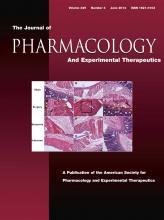Abstract
There is a growing need to understand the underlying mechanisms involved in the progression of cardiovascular disease during obesity and diabetes. Although inhibition of fatty acid oxidation has been proposed as a novel approach to treat ischemic heart disease and heart failure, reduced muscle fatty acid oxidation rates may contribute to the development of obesity-associated insulin resistance. Our aim was to determine whether treatment with the antianginal agent trimetazidine, which inhibits fatty acid oxidation in the heart secondary to inhibition of 3-ketoacyl-CoA thiolase (3-KAT), may have off-target effects on glycemic control in obesity. We fed C57BL/6NCrl mice a high-fat diet (HFD) for 10 weeks before a 22-day treatment with the 3-KAT inhibitor trimetazidine (15 mg/kg per day). Insulin resistance was assessed via glucose/insulin tolerance testing, and lipid metabolite content was assessed in gastrocnemius muscle. Trimetazidine-treatment led to a mild shift in substrate preference toward carbohydrates as an oxidative fuel source in obese mice, evidenced by an increase in the respiratory exchange ratio. This shift in metabolism was accompanied by an accumulation of long-chain acyl-CoA and a trend to an increase in triacylglycerol content in gastrocnemius muscle, but did not exacerbate HFD-induced insulin resistance compared with control-treated mice. It is noteworthy that trimetazidine treatment reduced palmitate oxidation rates in the isolated working mouse heart and neonatal cardiomyocytes but not C2C12 skeletal myotubes. Our findings demonstrate that trimetazidine therapy does not adversely affect HFD-induced insulin resistance, suggesting that treatment with trimetazidine would not worsen glycemic control in obese patients with angina.
Footnotes
- Received February 23, 2014.
- Accepted March 18, 2014.
This study was funded by a grant from the Heart and Stroke Foundation of Alberta (to G.D.L.); and the National Institutes of Health National Heart, Lung, and Blood Institute [Grant R01-HL101189] (to D.M.M.). J.R.U. is a trainee of the Alberta Heritage Foundation for Medical Research.
- Copyright © 2014 by The American Society for Pharmacology and Experimental Therapeutics
JPET articles become freely available 12 months after publication, and remain freely available for 5 years.Non-open access articles that fall outside this five year window are available only to institutional subscribers and current ASPET members, or through the article purchase feature at the bottom of the page.
|






